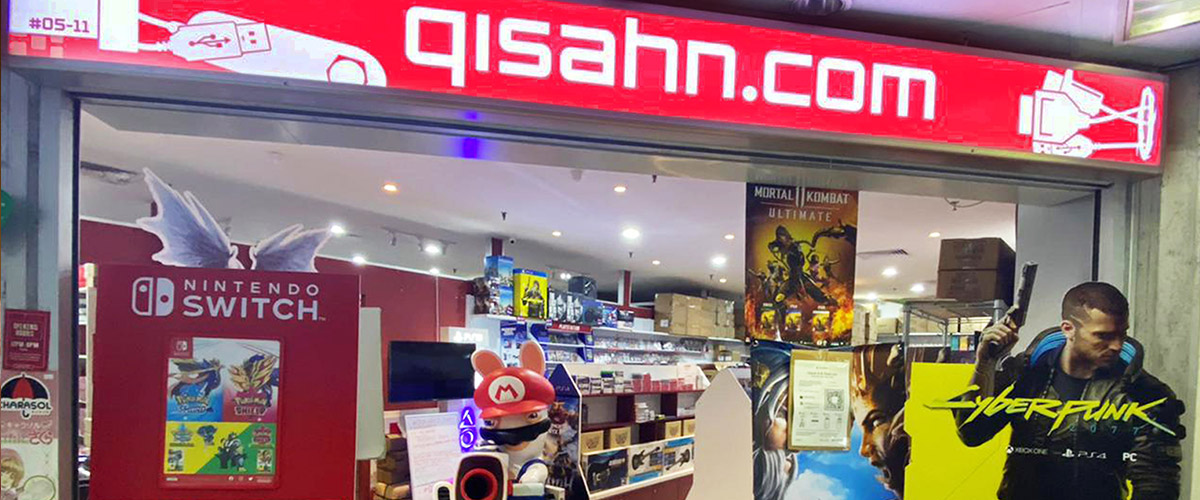Wary of the rising number of online scammers and fraudulent digital transactions during the year-end sale period, Singapore video games retailer Qisahn monitored incoming orders and managed to identify several suspicious orders that turned out to be scammers using its online store to cheat Singaporeans.
It started when its staff started noticing a series of S$952 orders coming into its system, for iTunes gift cards, fully paid for by Singapore’s PayNow digital payment system. Normally, when customers buy digital goods, the team would immediately send out the digital gift card/code to the buyer’s email address, for them to claim the digital codes on the card.
As it turns out, the purchases were made by actual customers who paid up using PayNow, but were made to send the codes to the scammer’s email addresses.
How it all works
Here’s how the scam works on digital goods:
- The Scammer asks a Victim to buy digital items, including gift cards and digital codes, and make a payment on Qisahn
- The Victim enters the Scammer’s email address under “shipping details”, so that the digital goods is sent to that email
- Victim makes payment via PayNow, a non-credit card payment system which allows for quick bank transfers between individuals and companies in Singapore
- Qisahn receives the money and send out the code to the email the Victim has entered, and completes the transaction
- Scammer takes the code and resells it for actual money
- Victim realises he’s been defrauded
- Victim makes a report to the police and bank in an attempt to claw back the money.
The Aftermath
In a recent post by Qisahn, it show’s the victim’s banks reaching out to the retailer to claim back the money.
Unfortunately, since the buyer entered the email address and a digital code has been sent across, the transaction has been completed, with items paid up and goods received.
The increased prevalence of iTunes gift card scams is just one of the few issues Singaporean video game retailer Qisahn is combating. While many folks might have seen ads around town from the Singapore Police to stay vigilant amid the rise of such scams, it hits home when it involves someone close to the video game community.
What Happens Next?
Thanks to the vigilance of the retail staff at Qisahn, Geek Culture understands that a few transactions made it through before the team started noticing a trend. They were then able to stop several more transactions from making it through to the scammers, by not sending out the digital codes immediately.
The rise in such scams during the year-end sale period also indicates that scammers are tapping on the busy period where online retailers are working hard to fulfill orders, and do not have the time to scrutinise every order placed.
Unfortunately, with direct bank transfers like PayNow, once the codes have been sent out, the burden falls on the customer. In other words, the money is gone.
Unlike a credit card transaction where the credit card company is the middleman for such payments, there’s little way of recourse. If anything, in such instances, it is the retailer who will bear the burden for fraud.
As for Qisahn, this is simply part of the challenge of running an online business in the modern era. While it has helped some Singaporeans from being scammed, Geek Culture understands that a local bank has terminated its relationship with Qisahn, even though the online retailer is also a victim and target.
“This is the first time we’ve come across scammers using PayNow as a transaction method.
We’ve been collecting payments via bank transfers for 13 years and last year was the first time we encountered fraud through this payment method. Previously, it was always done using credit cards,” as explained by Soon Qishan, founder of Qisahn.com.
Alas, the perils of technology.
Gerald currently straddles between his love of video games and board gaming. There’s nothing that interests him more than trying out the newest and fanciest gadget in town as well. He dreams of publishing a board game sometime in the future!












